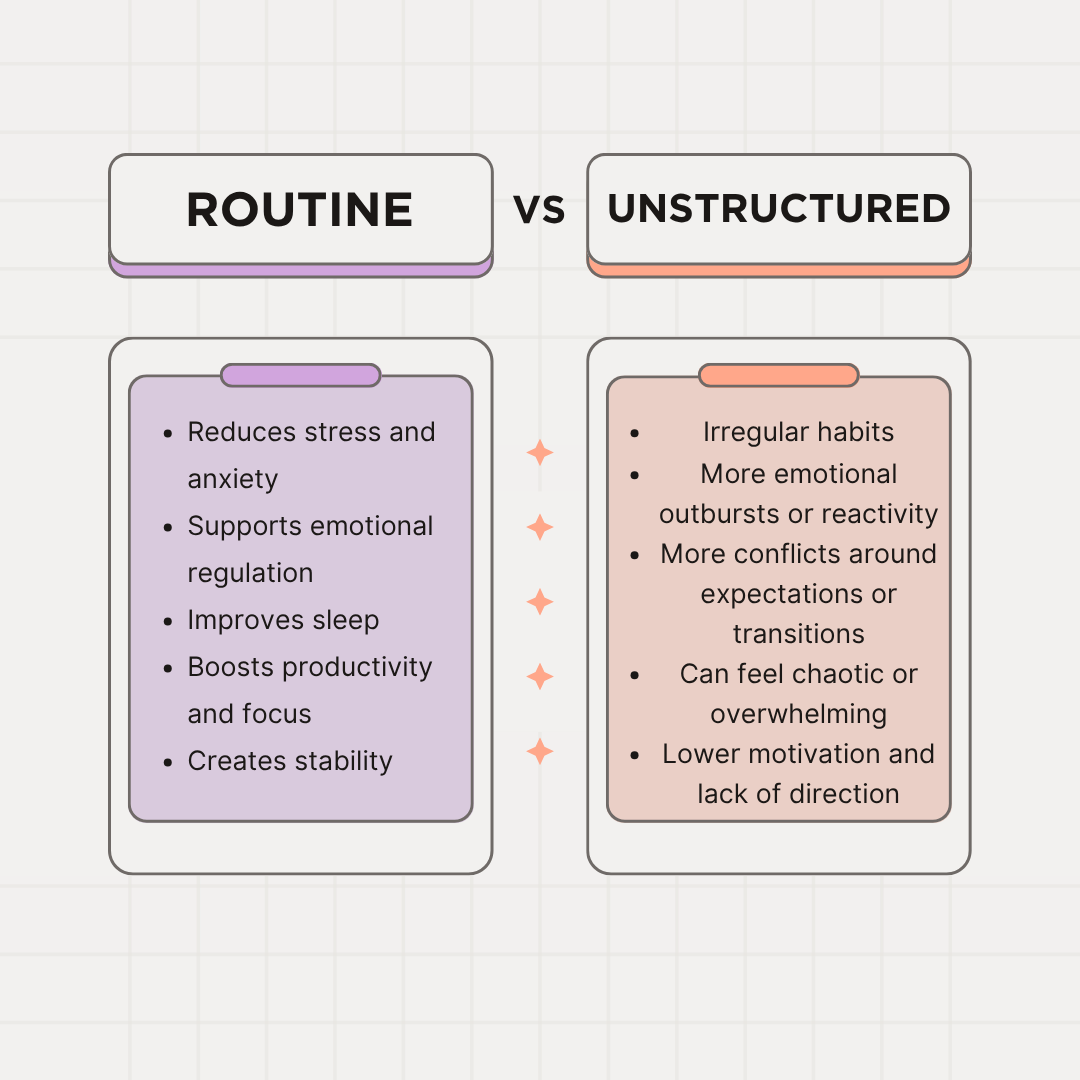Establishing a daily routine is one of the most effective ways to promote mental health. Routines provide structure, reduce uncertainty and support both children and adults in managing emotions, improving behavior and creating stability during times of change.
Why Routine Matters
For Children and Teens:
- Predictability Reduces Anxiety: Children feel safer when they know what to expect. This is particularly important during transitions such as starting a new school year or adjusting to changes in the home environment.
- Supports Emotional Regulation: Consistent routines help children recognize what comes next, which in turn reduces emotional outbursts and behavioral difficulties.
- Encourages Positive Habits: Structured daily tasks like regular bedtimes, mealtimes and homework schedules promote healthy development and responsibility.
For Adults:
- Improves Focus and Productivity: Having a structured day can reduce distractions and increase efficiency, particularly for individuals managing stress, anxiety or ADHD.
- Enhances Emotional Stability: Routines can serve as grounding tools during stressful times, helping to maintain a sense of normalcy and control.
- Supports Health and Self-Care: Regular sleep, meals, exercise and downtime are more likely to occur when built into a predictable routine.
Tips for Establishing a Routine
- Start with One Area
Focus on creating structure around one part of the day—such as a consistent morning routine or bedtime schedule—before expanding to other areas. - Be Realistic and Flexible
Set routines that are manageable. Rigid schedules can create additional stress. Flexibility allows room for adjustment while still maintaining structure. - Use Visual Aids for Children
Visual schedules, charts or simple lists can help children follow routines with more independence and reduce the need for repeated reminders. - Build in Transitions
Give clear signals when transitioning from one activity to another. For example, a five-minute warning before bedtime can help children adjust and reduce resistance. - Review and Adjust as Needed
What works one month may need adjustment the next. Revisit routines regularly to ensure they continue to meet the needs of everyone involved.
Conclusion
Daily routines are more than just schedules—they are foundational to emotional regulation, behavioral consistency, and mental clarity. While they look different for each individual or family, the benefits of routine are universal.
If you or your family are working through challenges related to transitions, emotional regulation, or behavioral concerns, Family Connections can help. Our therapists work collaboratively to support the development of realistic, effective routines tailored to each client’s needs.







